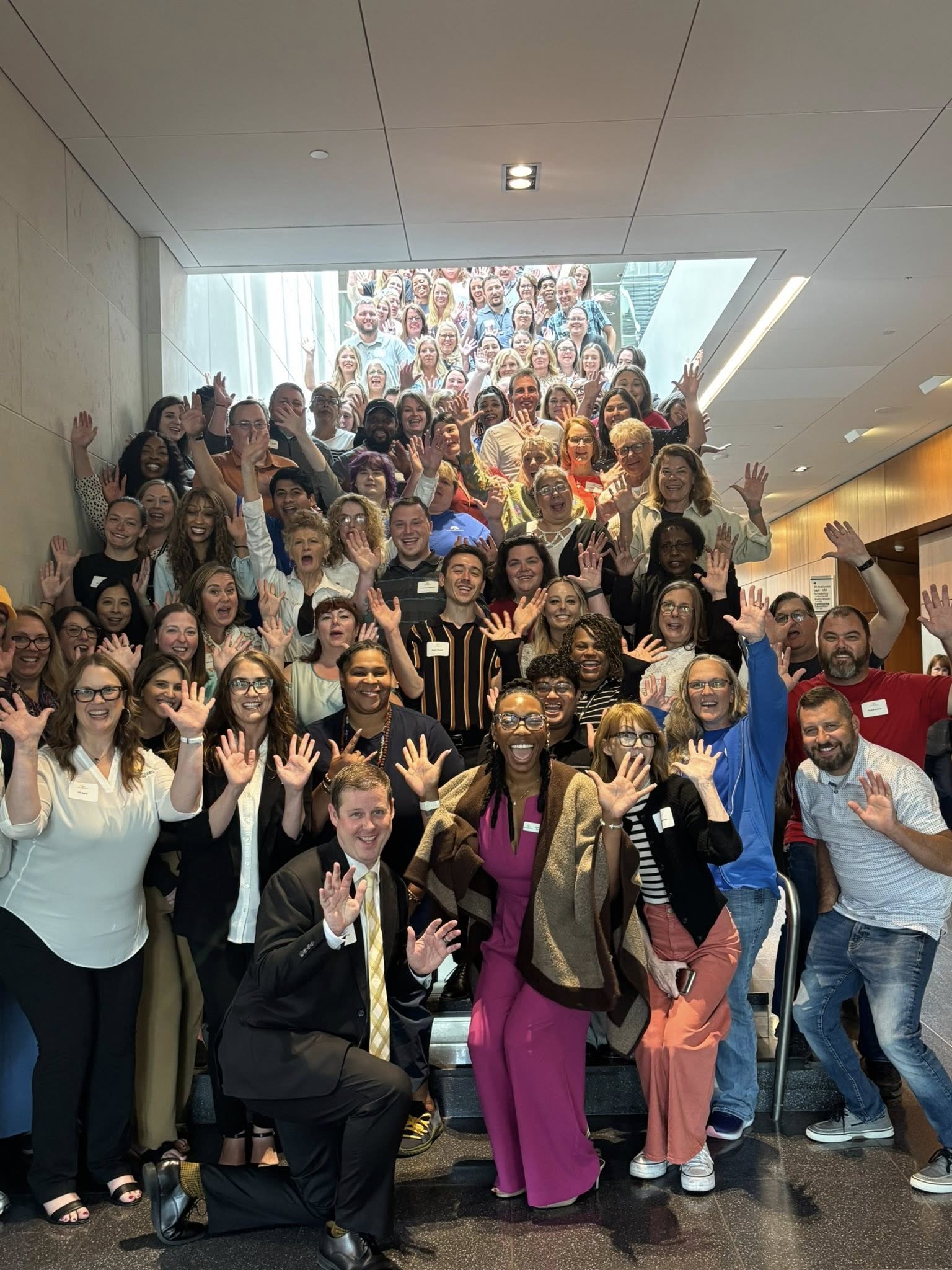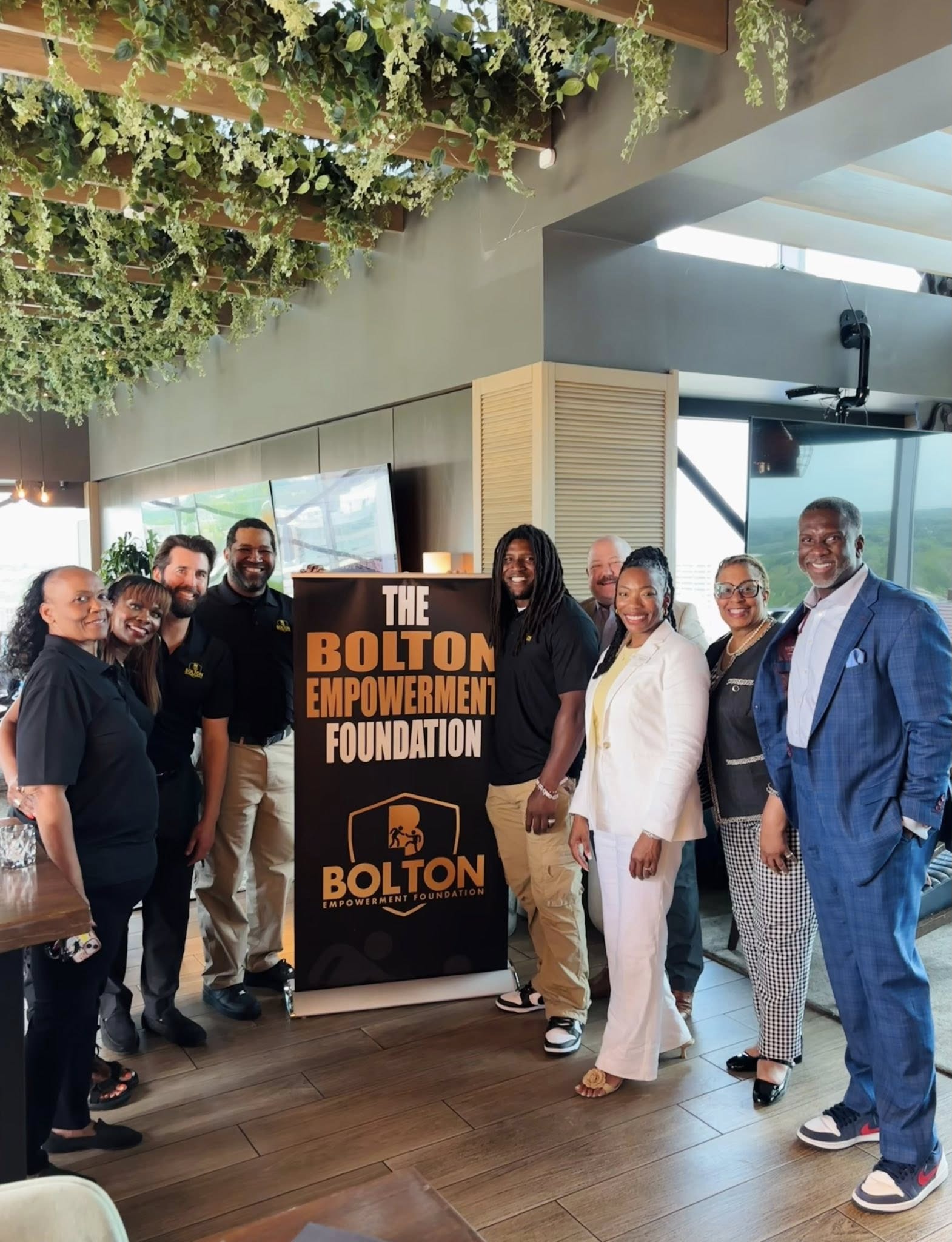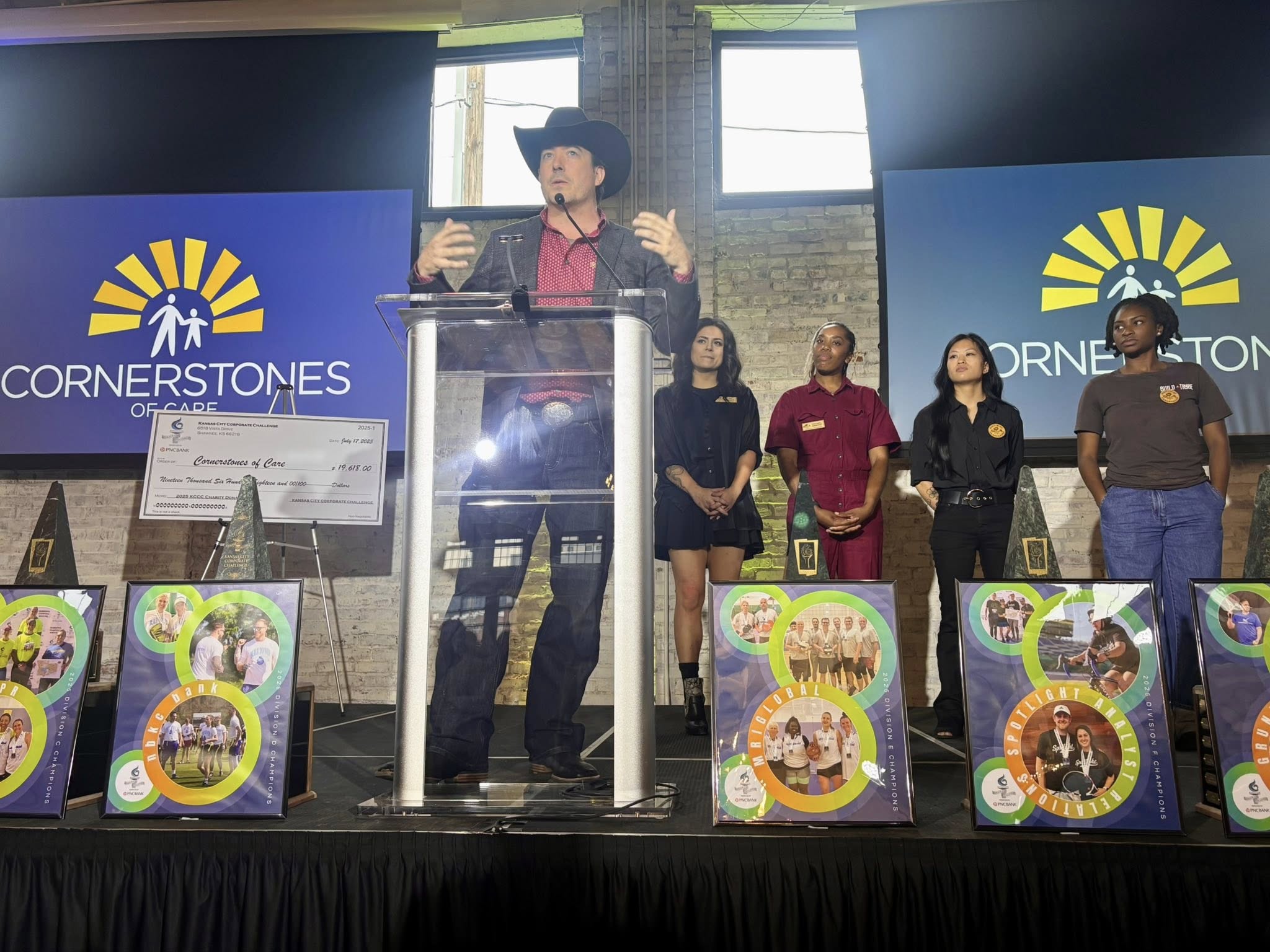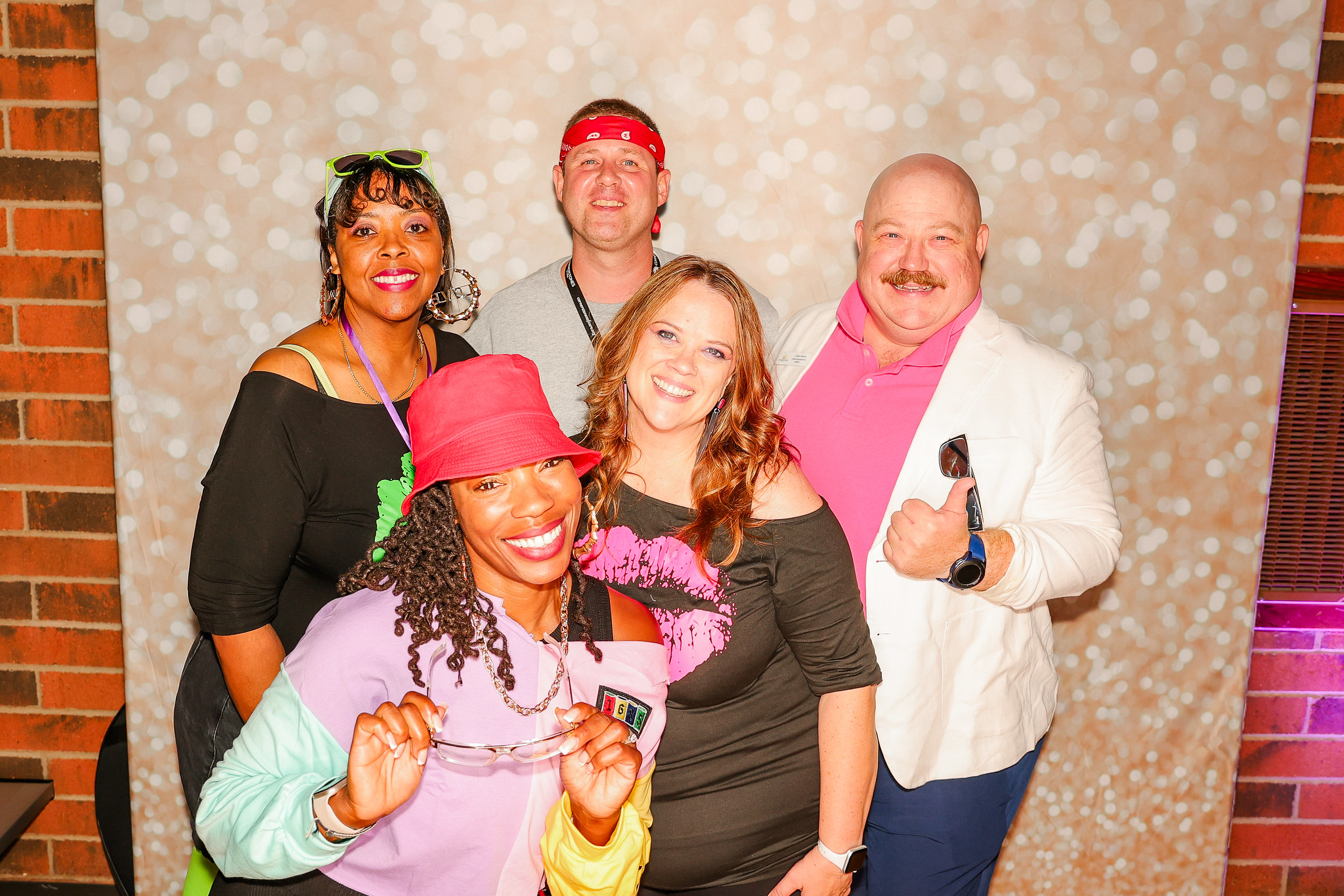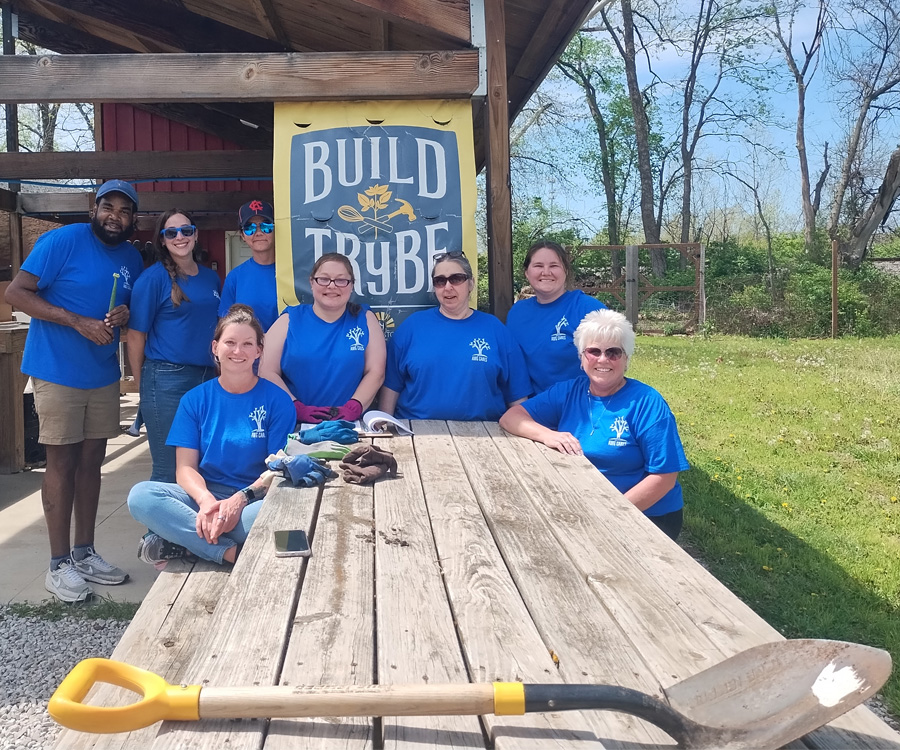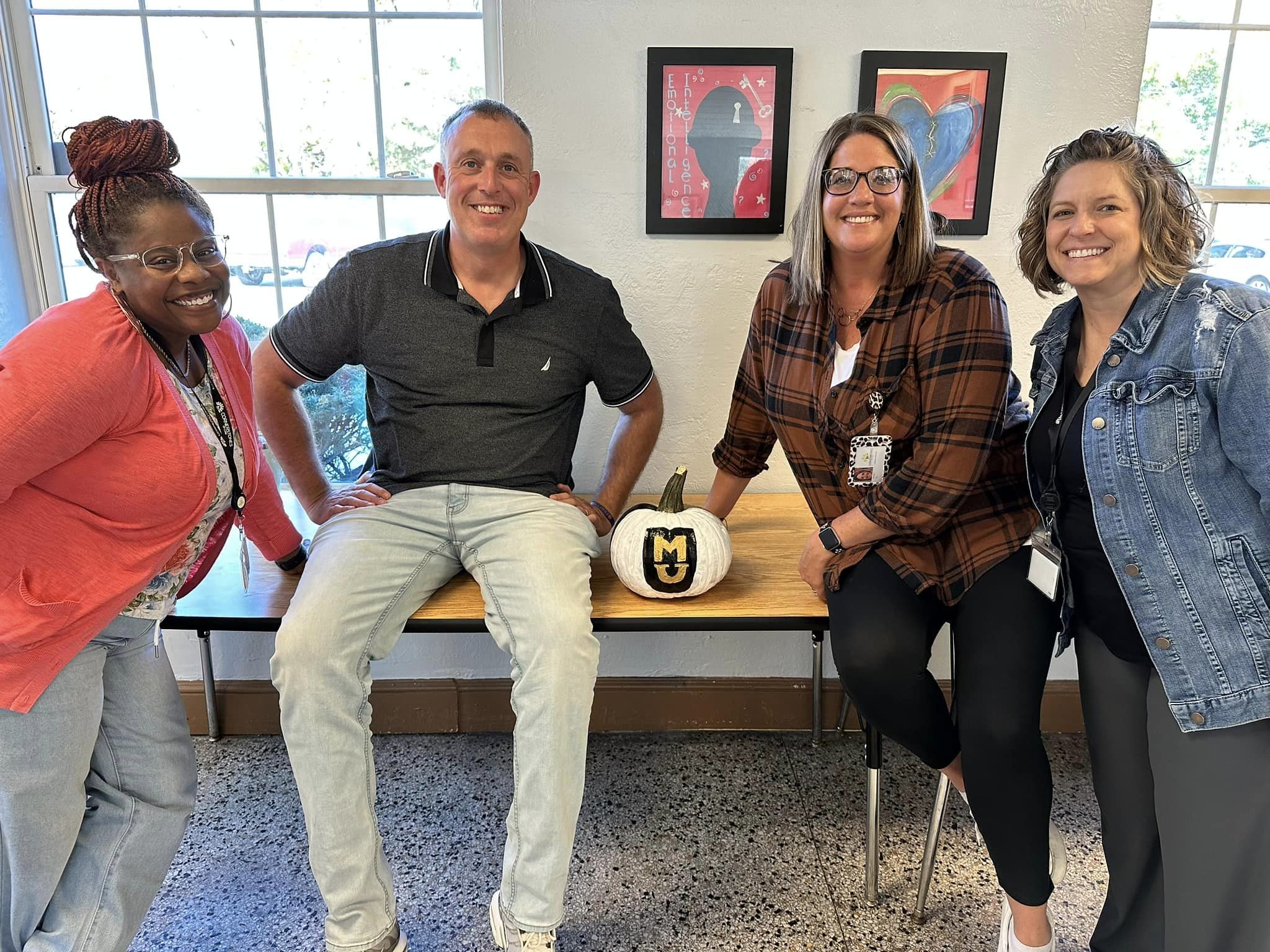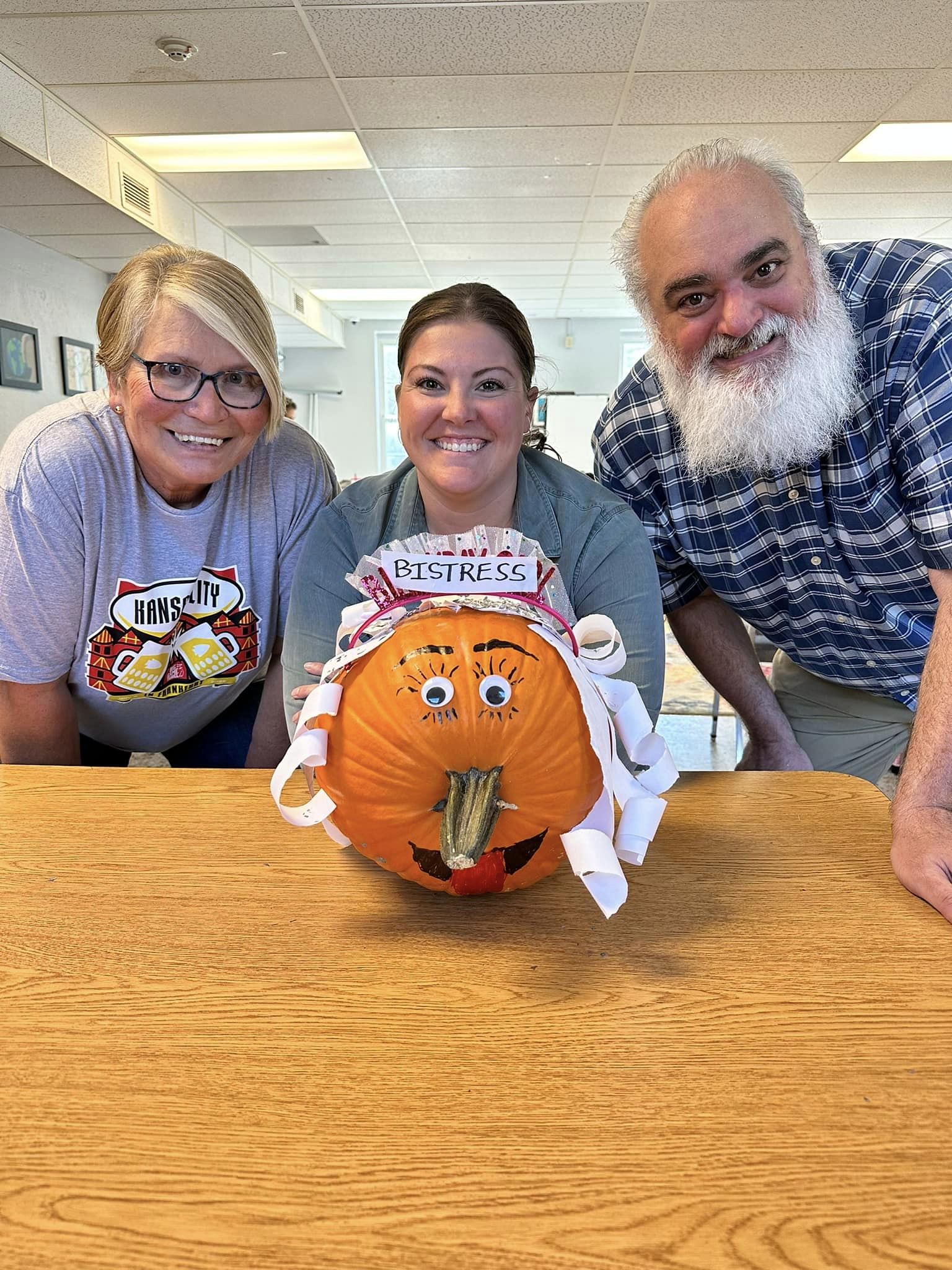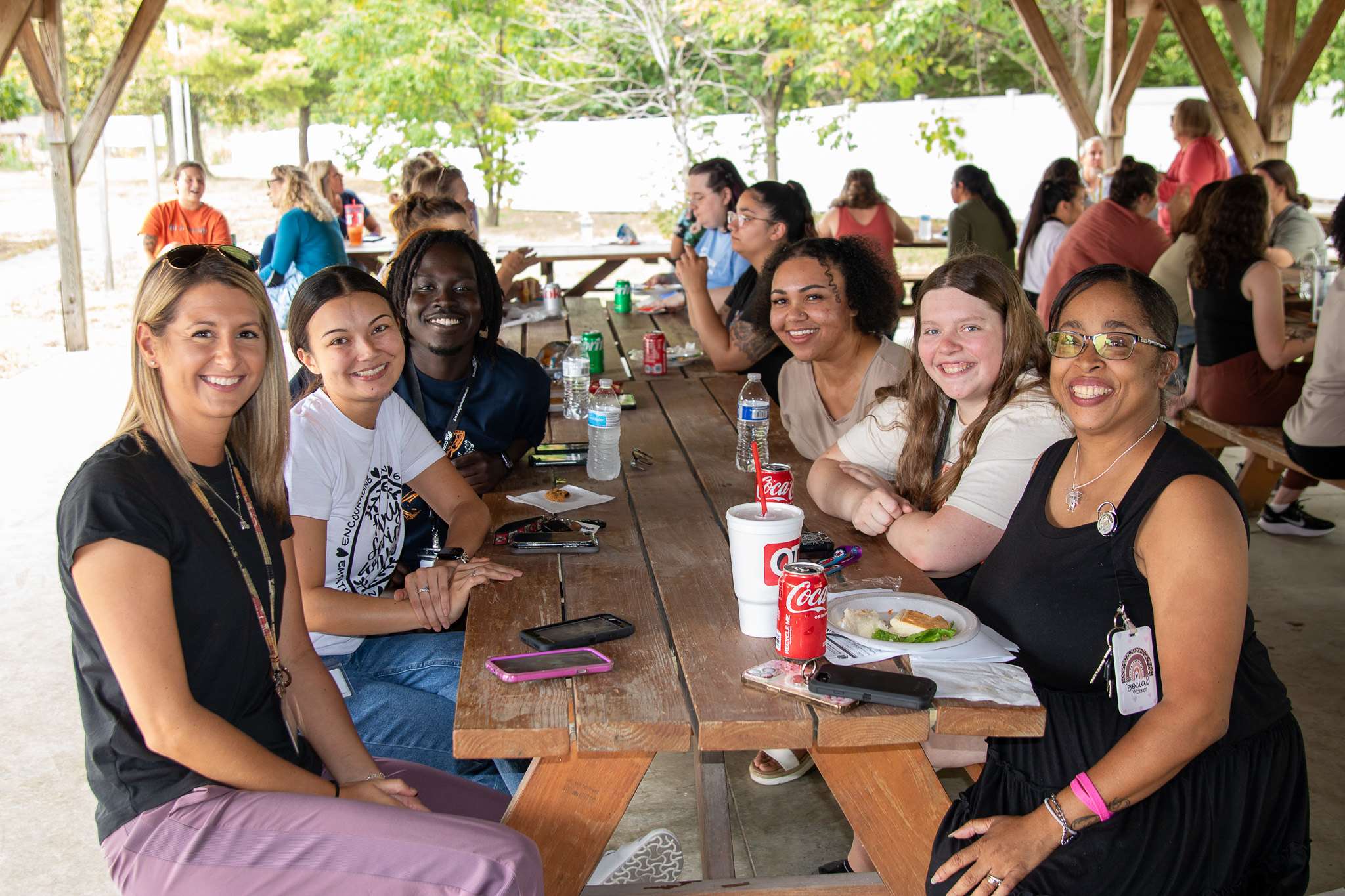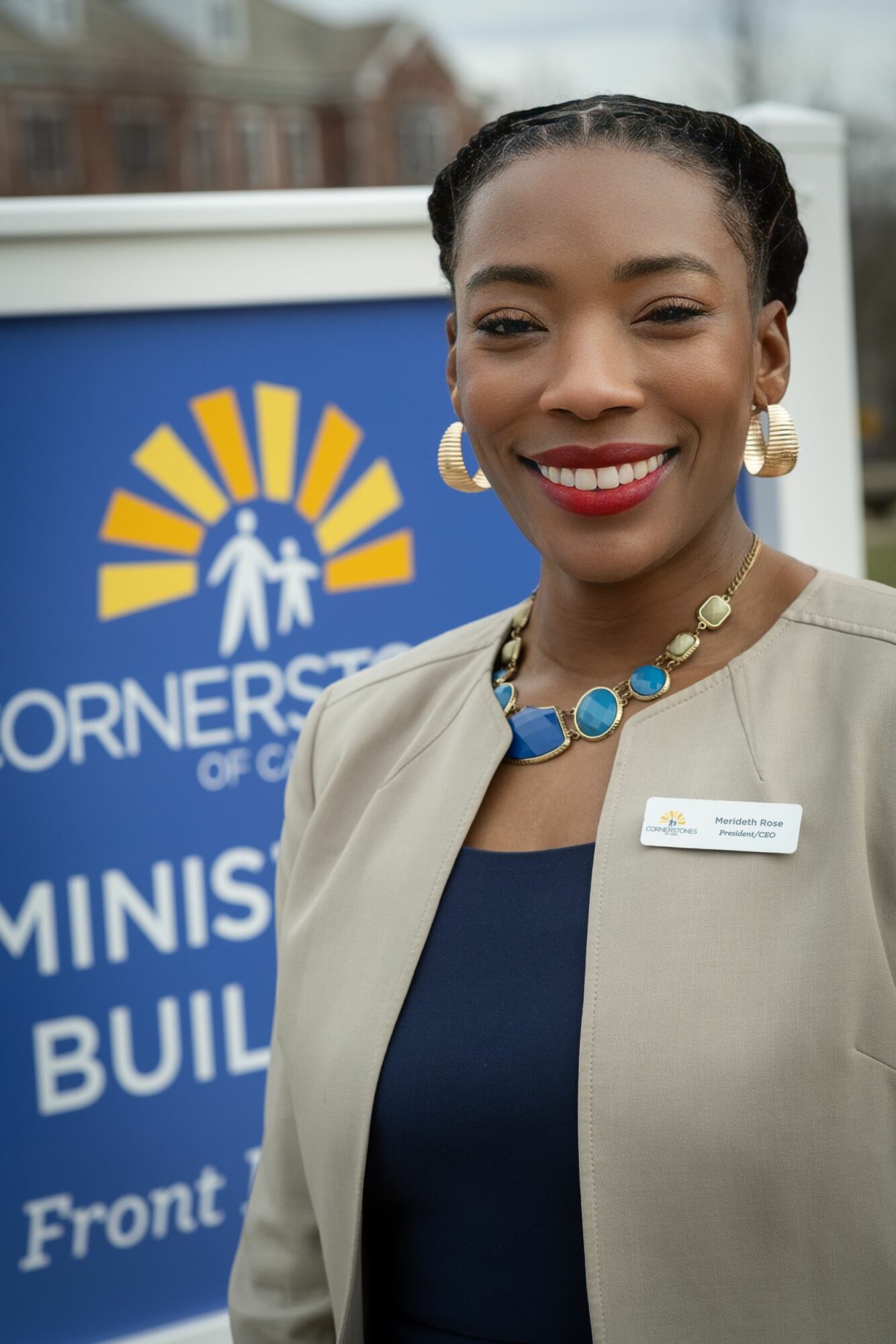

Today we’d like to introduce you to Merideth Rose.
Hi Merideth, we’re thrilled to have a chance to learn your story today. So, before we get into specifics, maybe you can briefly walk us through how you got to where you are today?
You know, it’s such an interesting thing—checking into your own life story at different milestones along the journey. I’ve had the privilege of telling and retelling my story over the years: the wins, the wounds, the self-induced detours, and the moments of pure grace that stitched it all together. Every time I share it, I’m reminded that I am the living evidence of what happens when pain meets purpose and faith meets fight.
I was blessed to be adopted and raised by a Southern momma 40 years my senior—a woman of extraordinary grit and grace who taught me that excellence isn’t about perfection, it’s about perseverance. From her, I inherited a deep sense of purpose, a reverence for people, and a relentless drive to pursue impact. Even as a child, I had a heart for the human condition. I was drawn to what was gritty and real, to the stories of people navigating injustice and inequity—and I couldn’t look away.
My journey hasn’t been linear; it’s been layered. I am a former foster youth, a teenage mother, a survivor of abuse, homelessness, and the very child welfare system I now help to change. My commitment to healing and justice isn’t theoretical—it’s lived. Over the past 23 years, I’ve worked across nonprofit, government, and federal emergency management sectors, from leading FEMA’s community relations response to Superstorm Sandy, to building school-based mental health systems from the ground up, to now serving as President and CEO of Cornerstones of Care—the first Black woman to hold that role in our 156-year history.
But my story isn’t about titles. It’s about transformation. I’ve taken the bricks that were thrown my way in moments of discrimination and despair and built a foundation of leadership rooted in safety, belonging, and radical love. My life’s calling is to create spaces—whether in boardrooms, classrooms, or community tables—where people feel seen, safe, and valued.
Today, through Cornerstones of Care and my personal ministry, <i>Sisters in Sanctuary</i>, I get to live out that purpose daily. We are changing systems from the inside out—designing trauma-informed, equity-rooted, and community-led solutions that help families heal long before they reach crisis.
So when I think about how I got here, the answer is simple: by grace, grit, and a heart surrendered to service. I am, in every sense of the word, broken no more—restored, repurposed, and ready to keep building spaces where others can rise.
Alright, so let’s dig a little deeper into the story – has it been an easy path overall and if not, what were the challenges you’ve had to overcome?
Smooth? Not at all—and honestly, I wouldn’t trade a single bump along the way. My road has been rugged, redemptive, and real. Every detour, every delay, every “no” became divine direction.
There were seasons when I was fighting battles no one could see—navigating motherhood as a teenager and homelessness as a young adult, working multiple jobs to stay afloat, and healing from the kinds of trauma that don’t make resumes but absolutely shape leaders. I’ve known what it feels like to sit in a welfare office one year and in a boardroom the next. I’ve known the sting of being the “only one” in spaces not built for me—the only woman, the only Black person, the only voice pushing for inclusion at tables that were too comfortable with exclusion.
There were also moments when the very systems I now help lead failed me. As a young mother and survivor, I experienced the child welfare system firsthand—my children were removed from my care. That was the breaking point that became my turning point. It taught me what it feels like to be unseen and unheard, and it birthed a fire in me to make sure no other family would have to endure that same pain without hope and a pathway toward restoration.
Professionally, I’ve walked through doors that were quietly closed after my arrival, and empowered by God’s grace and the strengthening arms of community – I’ve had to build new ones when none existed. There were roles I didn’t get, not because of lack of talent or readiness, but because my presence disrupted a comfortable narrative. And yet, through all of it, I’ve come to see that rejection was really redirection—and protection in disguise.
What kept me going was purpose, prayer, and people. My faith in Jesus anchored me. My mother’s voice guided me. I don’t deserve all that I’ve gotten, yet God has allowed me the grace to be one of the ones who made it out… and up. It was the rescuing and redemptive power of others that lifted me to life. And my community—the women, mentors, and friends who refused to let me forget my worth—helped me keep climbing. I will forever be grateful for my healers and helpers, my lifters and light-givers.
The truth is, I’m not defined by the hardships. I’m defined by the healing and hope that followed. Every scar became a story, every loss a lesson, and every closed door an invitation to create my own table. My journey hasn’t been smooth—but it has been sacred. And that’s far more powerful.
Thanks for sharing that. So, maybe next you can tell us a bit more about your work?
At my core, I am a builder — of people, purpose, and possibility. And that’s exactly what my work at Cornerstones of Care is all about. We are a 156-year-old behavioral health and child welfare non-profit organization serving more than 16,000 youth and families across Kansas and Missouri and beyond each year. Our mission is simple but profound: to partner for safe and healthy communities.
What that really means is we walk alongside children and families on their journey toward healing — helping them to first experience safety in all forms, to rebuild from trauma, rediscover their worth, and reimagine what’s possible. From residential and foster care programs, to school-based mental health and therapeutic education services, youth and family supports, vocational training, and community partnerships, our reach touches nearly every system that shapes a child’s life.
Together as One Team, we’ve deepened that mission by embedding The Sanctuary Model™, a nationally recognized trauma-informed framework that centers on safety, emotional intelligence, learning, and healing — not just for those we serve, but for our staff as well. I believe an organization can only be as healthy as the people within it, so we’ve made wellbeing and belonging part of our operational DNA.
What I’m most proud of is how we’ve turned compassion into measurable impact — equity in action, prevention first, and healing that shows up in the data:
1) <b>Sanctuary, sustained: </b>Achieved 2025 Sanctuary recertification, remaining the only Sanctuary-certified behavioral health organization in the region, grounding our practices in safety, justice, and reshaping historically harmful systems.
2) <b>Prevention over placement: </b>Delivered the state’s largest regional reduction of Kansas youth in foster care — down more than 40% since FY 2011; and in Missouri – 91% of families served through our Intensive In-Home (IIS) and Intensive Family Reunification Services (IFRS) remained safely at home and without further penetration into the state child and family welfare system, preserving stability and belonging.
3) <b>Early childhood mental health at scale:</b> With support and partnership from the Hall Family Foundation, University of Missouri Kansas City, and the Anchors of Tomorrow Early Mental Health Collective, secured the region’s largest, unprecedented investment in mental and behavioral health supports for early education youth and families across five Kansas City metro early education centers.
4) <b>Equity, operationalized:</b> Grew external philanthropic support for our WIDE (Welcoming, Inclusive, Diverse & Equitable) strategy by 35%, translating values into sustained resources and outcomes.
5) <b>Supportive care for LGBTQIA+ and under-resourced youth:</b> Translated trauma-informed learning into program redesigns that are explicitly inclusive of LGBTQIA+ youth, while expanding vocational pathways and job placement opportunities for young people aging out of foster care through our Build Trybe program.
6) <b>Economic equity, by design:</b> Increased supplier diversity by 400% in a single year, with 80%+ of vendor spend kept in Kansas City, ensuring our dollars strengthen the communities we serve.
7)<b> Building a representative workforce: </b>We’re candid about the work ahead to diversify mental health care providers. In 2025, 27% of professional staff providing direct mental health services (who chose to report) identified as BIPOC (up from 23% in 2023). Among mid-level managers (who chose to report), 28% identified as BIPOC (up from 24%). We’re expanding targeted recruitment, internal promotion, and career-pipeline partnerships to counter structural barriers — because culturally responsive care is core to healing.
These outcomes aren’t accidental; they’re the product of disciplined, Sanctuary-anchored practice, courageous leadership, and communities that truly believe healing is possible.
What sets us apart is that we don’t just talk about trauma-informed care — we live it. Every decision, every policy, every partnership is guided by the belief that healing is possible and prevention is powerful.
As CEO, I see my role as both a bridge and a beacon — bridging systems that have often struggled to fully meet families’ needs, and shining light on what becomes possible when empathy meets excellence. At Cornerstones of Care, we’re not working in opposition to the system; we’re working within and alongside it to strengthen what already exists and to co-create what’s next — models of care rooted in dignity, equity, and belonging.
And when I look around at the lives being changed, the staff who’ve found renewed purpose, and the communities growing stronger, I know: this is what restoration looks like in real time.
Is there something surprising that you feel even people who know you might not know about?
You know, people often meet me as “the CEO,” the strategist, or the systems leader. But what most don’t know is that long before I ever led organizations or sat at board tables, I was an artist — a singer, dancer, actor, and teacher. The performing arts have always been my first language of healing.
I’ve found restoration through movement, song, and story for as long as I can remember. I grew up on stages — in community theaters, churches, and classrooms — learning early on that storytelling has the power to transform pain into purpose. Even now, I use those same creative muscles every day in my leadership. Whether it’s delivering a keynote, mentoring young women, or leading my team through change, I draw on rhythm, empathy, and emotion to help people feel what’s possible before they can fully see it.
That’s probably what surprises people most — that the same person who leads a multi-state behavioral health organization also finds her grounding through music, dance, and the art of performance. But for me, they’re all connected. My leadership excellence doesn’t come from a title; it comes from my courage to be fully, unapologetically me — real, expressive, and faith-filled.
<b>I believe authenticity is my superpower.</b> I’ve experienced healing all along my journey through the therapeutic arts, and I still use them today as tools for connection and restoration. Whether on stage, in a meeting, or behind a podium, my mission is the same: to help, to ignite hearts to action, to inspire hope, and to heal.
That same spirit fuels what we call #AllinCare at Cornerstones of Care — a belief that true healing happens when we bring our whole selves to the work: head, heart, and hands. Storytelling, creativity, and authenticity are how our team builds bridges between systems and souls. They are how we turn empathy into action and how, together, we remind Kansas City that caring isn’t just what we do — it’s who we are.
Contact Info:
- Website: https://www.cornerstonesofcare.org/
- Instagram: https://www.instagram.com/meridethrosekc/
- Facebook: https://www.facebook.com/meridethdrose
- Linkedin: https://www.linkedin.com/in/meridethrose/
- Twitter: https://x.com/meridethdrose
- Youtube: https://www.youtube.com/@ourcornerstones
- Other: https://www.tiktok.com/@themerrose
